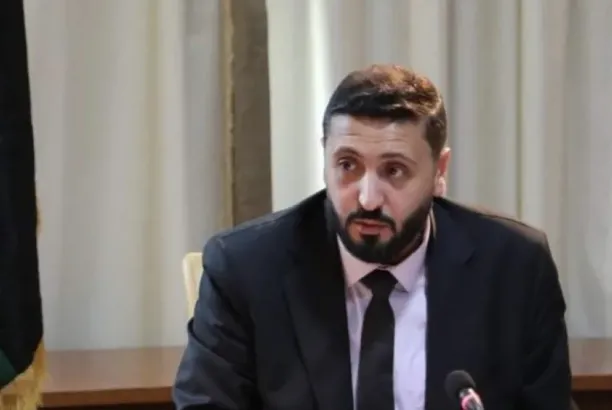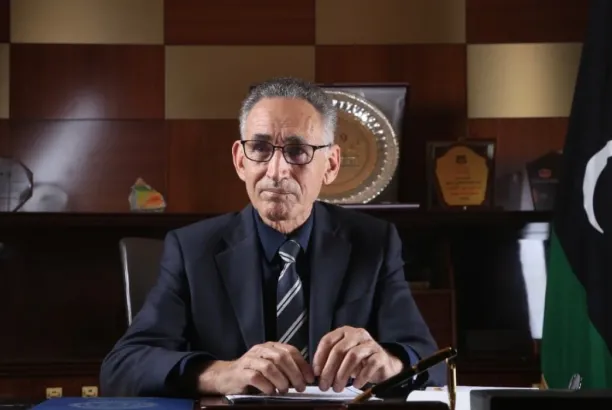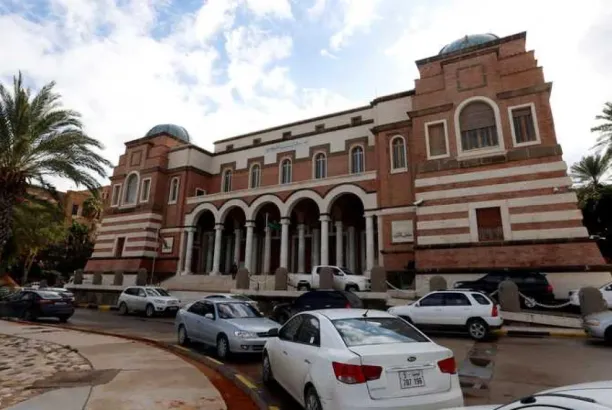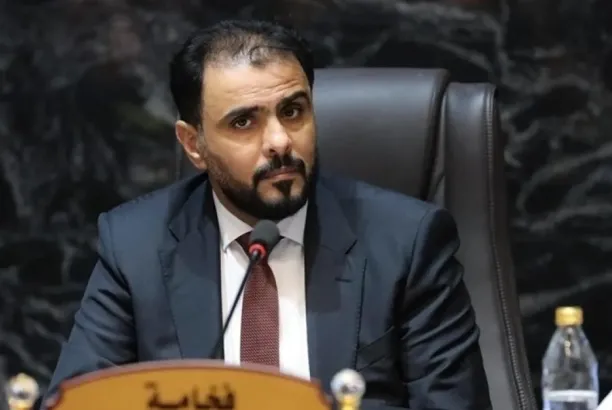Sada republishes an important message from a group of economic and financial experts regarding Libya’s economic situation and proposed solutions. They said: Following the report published yesterday by the Central Bank of Libya, which included alarming figures and assigned responsibilities resulting from the state of governmental division, and the ensuing rampant and inflated dual spending, waste, and corruption, both governments — East and West — emerged, each accusing the other and holding it responsible for the deterioration of the country’s financial and monetary conditions.
The experts added: This is what experts and concerned observers have warned about for a long time, and they have presented clear remedial solutions.
Since December 2024, a group of experts has been calling for consensus on an open letter addressed to the executive, monetary, and legislative authorities, including proposals to address the financial and economic chaos — as a preemptive step before reaching the point of collapse.
This open letter, signed by a group of experts and previously published by Sada newspaper, is being republished today in hopes that it will find listening ears.
Regarding the current economic situation:
Anyone who cares about the Libyan people must tell them the whole truth. Therefore, sugar-coated speeches and alignment with the distortions of the economic situation only serve narrow interests and are a gamble with the country and future generations.
Living standards have declined over the past decade, with poverty rates increasing, individual shares of GDP shrinking, and actual inflation and unemployment rates rising significantly, along with the erosion of citizens’ savings. The vast disparity in economic opportunities among citizens threatens a political explosion due to accumulating feelings of marginalization — whether real or perceived — and this becomes even more likely when those feelings align with narratives of regional and social marginalization.
Macro-financial indicators have reached levels that threaten financial sustainability and undermine stabilization efforts. It is therefore imperative to launch a comprehensive program to restructure the Libyan economy.
Institutional division — both horizontally and vertically — has increased the confusion in the state’s economic and financial management. Regardless of any proposed temporary solutions, they cannot replace the need to unify administrative and financial decisions by unifying all political institutions and renewing their legitimacy through general elections.
Regarding the general budget:
The state’s general budget is originally meant to reflect strategic vision and serve as a tool for funding, oversight, and monitoring. Unfortunately, it is currently used solely for current expenditures, which robs it of effectiveness and weakens its political and societal credibility.
A unified budget that includes all government spending items across Libya is essential. Despite all possible reservations, a unified budget remains better than any financial arrangements.
The budget should be realistic and take into account actual needs and expected revenues. It should also be based on macroeconomic and sectoral indicators — both quantitative and qualitative — to enable monitoring and evaluation within the framework of fiscal policy. The absence of economic indicators in general budgets reflects a disappointing, exploitative approach to public funds.
Regarding revenues:
All public entities tasked with collecting public revenues must fulfill their duties. No entity should retain or deduct any portion of revenues for any reason or transfer them to an unauthorized party.
All proceeds from the sale of oil, gas, petroleum derivatives, and all other sovereign revenues — without exception and within their due deadlines — must be deposited into the General Revenue Account of the Ministry of Finance.
In a country that primarily relies on oil revenues, the National Oil Corporation must disclose detailed monthly data on its exports, including quantities of each crude type, selling prices, the foreign partner’s share, and the public treasury’s share.
Regarding spending controls and standards:
The government and the National Oil Corporation must urgently end the oil cargo swap system used to supply the local market with fuels. These needs must be precisely identified and imported in specified quantities, and the NOC should contract with global refineries under transparent procedures. The NOC and the General Electricity Company must conduct monthly reconciliations to determine the actual fuel and gas supplies received by the company.
For both economic and security reasons that affect stability in Libya, fuel subsidies must be restructured according to a studied and gradual policy that includes a social safety net, enhances citizens’ purchasing power, and — most importantly — gains public trust through transparency and communication.
Rationalizing spending in wages and subsidies may be a harsh and painful procedure for certain social groups. However, the state must pursue a policy of truth with citizens and stop appeasing public opinion or serving factional interests.
For budget year 2025, the following spending rationalization measures must be implemented:
- Halt all government hiring and salary increases throughout 2025 to allow for an accurate employee census and to determine actual staffing needs. Review the release of financial entitlements due to observed irregularities.
- Issue a unified salary scale that reflects living standards and provides a reasonable balance between high and low grades.
- Review inflation in budget items such as food allowances, accommodation, and vehicle purchases.
- Reduce the number of entities funded by the public budget by merging public institutions with similar purposes.
- Reduce the number of Libyan embassies and diplomatic missions abroad and the number of personnel working in them.
- Stop spending large sums of public money without clear priorities on social programs such as marriage support, unless accompanied by economic and field studies that demonstrate their impact on the targeted groups.
We urge the relevant authorities to activate and support the following institutions due to their vital roles in economic development: Civil Status Authority, Real Estate Registry, Statistics and Census Authority, Tax Authority, Urban Planning Authority, Public Property Authority, and Customs Authority.
Development priorities should go to energy, electricity, essential social services, and infrastructure projects. In all cases, financial allocations for targeted projects must be clearly identified by name, geographical distribution, estimated value, and required cash flow over the implementation period.
It is essential to commit not to transfer funds from Chapter III (Development) to other chapters in the general budget.
Regarding budget execution monitoring and evaluation:
The authors of this message recognize that the general budget contains structural realities that are difficult to bypass — such as the bloated number of employees, citizens’ dependence on subsidies, and widespread corruption in the administrative system. However, they also understand that addressing structural imbalances and fighting corruption takes time, requires determination, and must be carefully planned so that well-intentioned policies do not turn into uncalculated decisions that fuel further conflict.
All public entities, without exception, must be subject to oversight rules from regulatory bodies to promote transparency and governance.
It is necessary that all public entities publish monthly reports on revenues and expenditures, as well as reports on development projects, their costs, and any financial or time deviations.
The Audit Bureau and the Administrative Control Authority must issue quarterly reports on development spending, in addition to the annual report in the first half of the following year to address violations before they worsen.
All state institutions must close their final accounts to enable the determination of their financial positions and the calculation of obligations and debts owed by the public treasury.
Regarding accompanying reform measures:
We urge legislative and executive institutions and think tanks to review all laws related to the state’s financial and economic system. These reviews must be carried out systematically and consultatively to ensure smooth implementation.
Until that happens, institutions must manage their finances in accordance with current laws and in a spirit of cooperation and professionalism that should prevail among state institutions.
A population census and essential surveys must be conducted to provide reliable indicators for economic decision-making and proper timing.
Economic and financial data must be provided and published in a comprehensive and reliable manner.
Resources must be allocated to municipalities, granting them the authority to spend on their identified development priorities.
Priority in public procurement and contracting should be given to the Libyan private sector.
The public treasury must not bear any financial commitments that do not have allocated provisions in the general budget. The Ministry of Finance must be responsible for the sound management of Libyan state assets — including public companies and sovereign funds — and must work to maximize their revenues without disposing of them outside the general state budget.
Procedural steps for budget approval:
If the economic situation is exceptional, the 2025 budget must also be handled exceptionally. To ensure its approval, commitment, and smooth implementation, wide political consensus among key stakeholders is necessary, along with active coordination between technical bodies and relevant political institutions.
The Central Bank of Libya must maintain its independence and operate strictly within the powers defined by Libyan legislation to preserve its professionalism and neutrality. Coordination with the Ministries of Finance and Economy must be arranged in a way that allows each to exercise its powers without overlap.
In conclusion, seriously and responsibly addressing the economic challenges requires launching a comprehensive political process that integrates all its tracks without delay or postponement by the UN mission. If Libya needs a solid national charter among its political and social components, it also needs a deep dialogue on the desired economic model — one that should guide the work of all institutions and address the deep-rooted and recurring causes of conflict.






